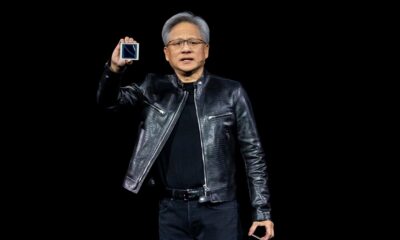TECHNOLOGY
Assistive Technologies For Independent Living

Independence is a fundamental aspect of human dignity, and in the modern age, technology is playing a pivotal role in ensuring that people with disabilities can lead more autonomous lives.
From smart home devices to innovative mobility aids, assistive technologies are transforming the landscape of independent living in the UK.
In this comprehensive guide, we’ll explore the exciting world of assistive technologies, highlighting how they empower individuals with disabilities to live life on their own terms.
Smart Home Automation

Imagine controlling your home with just a few spoken words or the tap of a button. Smart home automation is making this a reality for many people with limited mobility.
Devices like Amazon Echo and Google Home have become household staples, allowing users to control lights, thermostats, and even appliances with voice commands. For individuals with mobility challenges, this technology provides a newfound sense of control over their environment.
Beyond voice-controlled assistants, smart plugs, and bulbs, smart home systems can integrate security cameras, door locks, and motion sensors, enhancing safety and convenience. This means you can check who’s at the door, grant access remotely, and even monitor your home’s security from the comfort of your chair.
Mobility Aids: Beyond The Traditional Wheelchair
Mobility aids have come a long way, and they’re not just limited to traditional wheelchairs anymore. In the UK, you’ll find innovative solutions like the “Whill Model C,” a sleek and highly manoeuvrable electric wheelchair designed for both indoor and outdoor use. With its compact design, it’s perfect for navigating tight spaces.
For those who prefer a standing position, the “UPnRIDE” is a game-changer. This revolutionary device allows users to go from sitting to standing and vice versa with ease, promoting better posture, health, and social interaction.
Communication Devices
Communication is a fundamental human right, and assistive technologies are ensuring that everyone has a voice. Augmentative and alternative communication (AAC) devices like the “Tobii Dynavox” enable individuals with speech disorders or limited mobility to express themselves effectively.
These devices use eye-tracking technology to convert a user’s eye movements into spoken words or text, offering a lifeline to those who may have otherwise been unable to communicate.
Accessibility Apps
In the digital age, smartphones have become indispensable tools for everyone, including those with disabilities.
A wide range of accessibility apps is available in the UK to cater to various needs. For instance, “Be My Eyes” connects blind and visually impaired users with sighted volunteers through a live video call, helping with tasks like reading labels or navigating unfamiliar surroundings.
“VoiceOver” and “TalkBack” are built-in screen readers for iOS and Android devices, respectively, making smartphones accessible to users with visual impairments. These apps read aloud the content on the screen and provide voice-guided navigation.
Wearable Technologies
Wearable devices are not just for tracking steps; they’re also making strides in enhancing the lives of people with limited mobility.
“Smart glasses” equipped with cameras and augmented reality (AR) technology can identify objects and read text aloud to the wearer, providing valuable information about their surroundings.
Additionally, “smart gloves” with sensors and haptic feedback can help users with limited hand dexterity perform tasks like typing or grasping objects more easily. These gloves provide tactile feedback, making it easier to interact with digital interfaces and physical objects.
Environmental Control Systems
Environmental control systems (ECS) are the ultimate in-home automation for individuals with limited mobility. These systems enable users to control virtually every aspect of their living environment, from opening curtains to adjusting room temperature and even answering the doorbell.
ECS can be operated through various input methods, including voice commands, switches, or specialised interfaces. By integrating ECS with other assistive technologies, individuals can achieve unparalleled independence and comfort in their daily lives.
Vehicle Adaptations
For many people with disabilities, having the ability to drive is a symbol of freedom and independence.
In the UK, various vehicle adaptations make it possible for individuals with mobility challenges to hit the road safely. Hand controls, pedal extensions, and wheelchair-accessible vehicles and vans are just a few examples of how technology is breaking down barriers to transportation. If you would like to buy, hire or lease a wheelchair accessible vehicle that suits your unique needs, you’re sure to find the ideal motor with the help of Allied Mobility.
Of course, as we look to the future, the development of self-driving cars holds great promise. These autonomous vehicles have the potential to revolutionise mobility for individuals with disabilities, offering a new level of independence in transportation.
Assistive Gaming
Gaming is a popular pastime, and it’s becoming increasingly inclusive, thanks to assistive technologies. Specialised controllers and software adaptations allow gamers with disabilities to enjoy video games just like their able-bodied counterparts. Companies like Microsoft have introduced the Xbox Adaptive Controller, which is highly customisable to suit individual needs.
Moreover, virtual reality (VR) gaming is opening up exciting new possibilities. VR can provide immersive experiences that transcend physical limitations, allowing players to explore virtual worlds and engage in activities they might not otherwise have the opportunity to enjoy.
Telehealth And Remote Monitoring

Access to healthcare is a critical aspect of independent living. Telehealth services in the UK are bridging the gap by enabling individuals to consult with healthcare professionals from the comfort of their homes. Video consultations, remote monitoring devices, and mobile health apps are becoming increasingly prevalent, making it easier for people with disabilities to manage their health effectively.
The Road Ahead: Innovations On The Horizon
The field of assistive technology is ever-evolving, and the future holds even more promise. Researchers are exploring the potential of brain-computer interfaces (BCIs) that could allow users to control devices directly with their thoughts.
Such innovations could revolutionise mobility and communication for individuals with severe disabilities.
Financial Assistance And Resources
While assistive technologies offer incredible opportunities for independent living, they can be costly.
Fortunately, in the UK, various financial assistance options and resources are available to help individuals with disabilities acquire the necessary tools. There are grants and subsidies for assistive technology purchases, and local charities may also provide support.
Moreover, it’s essential to explore the services provided by organisations like “AbilityNet” and “Scope,” which offer guidance, assessments, and advice on assistive technologies. These organisations can help individuals navigate the complex landscape of funding and choose the most suitable technologies for their needs.
Overcoming Challenges And Barriers
While assistive technologies have come a long way in promoting independent living, there are still challenges and barriers that need to be addressed. One significant challenge is ensuring that these technologies are affordable and accessible to all individuals who require them. Inequality in access to assistive technology remains a concern in the UK and globally.
Additionally, there can be a learning curve associated with using new technologies. Users may require training and support to make the most of these tools effectively. Furthermore, ensuring that assistive technologies are integrated seamlessly into public spaces, such as transport systems and buildings, remains a priority for advocates of disability rights.
In A Nutshell
As you can see, assistive technologies are transforming the lives of people with limited mobility in the UK and around the world. These innovations are not only enhancing independence but also promoting inclusivity and equality.
As technology continues to advance, we can expect even more exciting developments in the realm of assistive technologies, making the dream of full independence a reality for countless individuals.

















